Speakers / Panelists
(Alphabetical by Surname)

Paul Ai
Senior Director for Energy System Solutions, Delta Electronics Inc., Taipei
Dr Paul Ai is currently Senior Director for Energy System Solution, Delta Electronics, Inc., Taiwan. Dr Ai received a PhD in Electrical Engineering from National Cheng Kung University. He used to be the Chief Technical Officer of Delta Greentech (China) Co., Ltd., Senior Technical Manager, Delta Electronics Inc., and an assistant Professor in the Department of Electrical Engineering of I-Shou University. Dr Ai has been granted more than 30 patents.Biography

George Apostolakis
Head, Nuclear Risk Research Center (NRRC), Tokyo
Professor Emeritus, MIT, Massachusetts
Biography
Dr George Apostolakis is the Head of the Nuclear Risk Research Center in Japan. He is a professor emeritus of the Nuclear Science and Engineering Department of the Massachusetts Institute of Technology. He is a Senior Fellow of the Garrick Institute for Risk Sciences at UCLA. He served as a Commissioner of the U.S. Nuclear Regulatory Commission (NRC) from April 23, 2010 until June 30, 2014. From 1995 to 2010, he was a member and Chairman (2001–2002) of the statutory Advisory Committee on Reactor Safeguards of the NRC.
He is a member of the U.S. National Academy of Engineering, and a Fellow of the American Nuclear Society and the Society for Risk Analysis. He was a recipient of the Henry DeWolf Smyth Nuclear Statesman Award from the American Nuclear Society and the Nuclear Energy Institute.
Dr Apostolakis holds a PhD in Engineering Science and Applied Mathematics (1973) and a master’s in Engineering Science (1970) from the California Institute of Technology. He earned his undergraduate degree in Electrical Engineering from the National Technical University in Athens, Greece, in 1969.
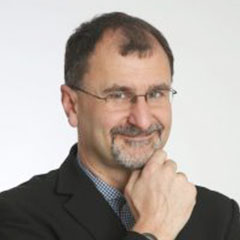
Christoph J. Brabec
Department of Materials Science, Friedrich-Alexander Universität Erlangen-Nürnberg, Erlangen
Helmholtz Institut Erlangen-Nürnberg, Erlangen, Forschungszentrum Jülich
Biography
Christoph J. Brabec received a PhD (1995) in Physical Chemistry from Linz University, Austria and joined the group of Alan Heeger at UC Santa Barbara (USA) for a sabbatical. He joined the SIEMENS research labs (project leader) in 2001, Konarka in 2004 (CTO), Erlangen University (FAU – Professor for Material Science) in 2009, and ZAE Bayern e.V. (scientific director and board member) in 2010. He was spokesmen for the Interdisciplinary Center for Nanostructured Films (IZNF) in 2013 and became a director at FZ Jülich (IEK-11) in 2018. In 2018, he was appointed Honorary Professor at the University of Groningen, Netherlands.
His research interests include all aspects of solution processing organic, hybrid and inorganic semiconductor devices, with a strong focus on photovoltaics and renewable energy systems. His combined scientific and technological interests have supported the spin-off of several companies. He has published over 650 articles, received about 100 patents, written several books and book chapters, and received more than 75,000 citations overall. His h-index is over 125, and Thompson Reuters HRC has listed him for several consecutive years as a highly cited researcher.

Jacopo Buongiorno
MIT, Massachusetts
Biography
Jacopo Buongiorno is the TEPCO Professor of Nuclear Science and Engineering at the Massachusetts Institute of Technology (MIT), and Director of Science and Technology at the MIT Nuclear Reactor Laboratory. He teaches a variety of undergraduate and graduate courses in thermo-fluids engineering and nuclear reactor engineering. Jacopo has published 90 journal articles in the areas of reactor safety and design, two-phase flow and heat transfer, and nanofluid technology. For his research work and teaching at MIT he has won several awards, including the ANS Outstanding Teacher Award (2019), the MIT MacVicar Faculty Fellowship (2014), the ANS Landis Young Member Engineering Achievement Award (2011), the ASME Heat Transfer Best Paper Award (2008), and the ANS Mark Mills Award (2001). Professor Buongiorno is the Director of the Center for Advanced Nuclear Energy Systems (CANES). From 2016 to 2018, he led an MIT study on the Future of Nuclear Energy in a Carbon-Constrained World. He is a consultant for the nuclear industry in the area of reactor thermal-hydraulics, and a member of the Accrediting Board of the National Academy of Nuclear Training. He is also a member of the Secretary of Energy Advisory Board (SEAB) Space Working Group, a Fellow of the American Nuclear Society (including service on its Special Committee on Fukushima in 2011 and 2012), a member of the American Society of Mechanical Engineers, a past member of the Naval Studies Board (2017–2019), and a participant in the Defense Science Study Group (2014–2015).

Roger Cashmore
Former Chairman, UKAEA
Biography
Professor Roger Cashmore was formerly Chairman of the UK Atomic Energy Authority. He is a Fellow of the Royal Society, and in 2010, he led the Royal Society working group on Nuclear Proliferation. He is a former Principal of Brasenose College at Oxford, and is a Professor of Experimental Physics at Oxford. Before returning to Oxford, he was Director of Research and Deputy Director General of CERN, the European high energy physics laboratory in Geneva, Switzerland, where he was responsible for the experimental programme at the Large Hadron Collider (LHC). Before leaving for CERN he was Chairman of Physics at Oxford, and during his teaching and research career, he has had more than 200 papers published in learned journals. He has been a Visiting Professor in Tsukuba, Japan, Brussels, Belgium, Padua, Italy, and Fermilab in the United States and received an Honorary Doctorate from the Joint Institute of Nuclear Research in Dubna, Russia. He was awarded the C V Boys Prize of the Institute of Physics and a Research Award by the Alexander von Humbold Foundation in Germany. In 2004 he was made a Companion of the Order of St Michael and St George (CMG) for services in the field of international particle physics.

Jason Chao
Nuclear Resilience Group, Inc.
Editor, Nuclear Engineering and Design, California
Biography
Dr Chao is currently the Chief Scientist and Vice President of Nuclear Resilience Group Inc., responsible for managing the intellectual property of novel equipment designs for mitigating station blackouts and for reducing the fuel cycle length by achieving more effective waste transmutation. He has been a Chair Professor at Tsinghua University Beijing and a Visiting Professor at the Tokyo Institute of Technology. He received a PhD in Nuclear Engineering from MIT and a master’s in Nuclear Physics from the University of Texas Austin, and he is a registered Professional Engineer in Mechanical Engineering in California. For 23 years, he managed Nuclear Analysis Methods at EPRI, comprising Reactor Physics, Thermal Hydraulics, Severe Accidents, and analysis of abnormal occurrences and accidents at nuclear plants, including two SGTR events and Chernobyl. Dr Chao was the project manager for severe accident analysis tools, the MAAP4 and MAAP5 codes, which are now used worldwide. He was responsible for code development, delivery, and maintenance, and user group activities. He has worked with RETRAN02, RETRAN03, CORETRAN, RELAP5, COBRA, VIPRE, GOTHIC, COMMIX, ANISN, SIMULATE, CASMO, CPM-3, etc. He has also reviewed PRA projects, material damage caused by radiation, safety analyses of new designs, MHD, and Fusion Reactor Blanket Designs. Dr Chao has been the Secretary for the Thermal Hydraulics Division of the American Nuclear Society and is the founder of the NUTHOS (Nuclear Thermal Hydraulics, Operations and Safety) series of meetings.
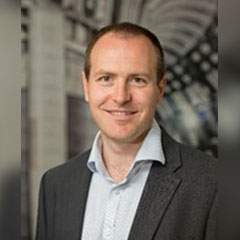
Ian Chapman
CEO, UKAEA
Culham Science Centre, Oxford
Biography
Ian Chapman became the CEO of the UK Atomic Energy Authority and Director of the Culham Centre for Fusion Energy in October 2016. He joined the UKAEA in 2004 and became Head of the Fusion Programme in 2014. He has held a number of international roles in fusion, including member of the Princeton Plasma Physics Advisory Board and the Chinese Academy of Sciences Plasma Physics Advisory Board, and chair of the IAEA International Fusion Research Committee.
His primary research interests are in understanding and controlling macroscopic instabilities in fusion plasmas. His research spans experiments on a number of fusion devices worldwide, as well as developing leading numerical modelling tools. A number of his journal publications have been included in highlights collections (Plasma Physics Controlled Fusion in 2011, Nuclear Fusion in 2012, and Physics of Plasmas in 2012), and his papers were included in the shortlist for the Nuclear Fusion Award in 2013 and 2016. He has published over 130 journal papers, including three topical review papers and is regularly invited to speak at international conferences.
His research has been recognized with a number of international awards, including the Institute of Physics Paterson Medal in 2013, the European Physical Society Early Career Prize in 2014, the American Physical Society Stix Award in 2017, and the Royal Society Kavli Medal in 2019. He was made a Fellow of the Institute of Physics in 2013 and a visiting Professor at Durham University in 2015.
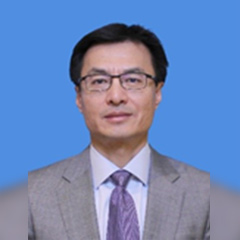
Roger Chen
Senior Director, Nuclear, CLP Holdings Limited, Hong Kong
Managing Director, Hong Kong Nuclear Investment Company Limited, Hong Kong
Biography
Roger Chen joined CLP through the CLP Executive Program in 2002. He is currently the Senior Director at CLP Holdings responsible for CLP’s nuclear business. He was seconded to Guangdong Nuclear Power Joint Venture Company, a joint venture between CLP and China General Nuclear Group (CGN), as Deputy General Manager in 2017 before taking up his current role.
Prior to joining CLP’s nuclear business, Mr Chen held various managerial positions across CLP Power Hong Kong and CLP Holdings. His responsibilities included corporate strategy and development, business planning, asset management, and fuel procurement.
He holds a Bachelor of Science in Engineering from Shanghai Jiao Tong University and a Master of Business Administration from Richard Ivey School of Business at the University of Western Ontario, Canada.
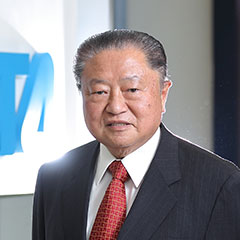
Bruce Cheng
Delta Electronics Inc., Taipei
Biography
Mr Bruce C.H. Cheng is the founder and honorary chairman of Delta Group. He is also the Founder and Chairman and Delta Electronics Foundation. Mr. Cheng mentors Delta’s future development and promotes Delta’s mission: “To provide innovative, clean, and energy-efficient solutions for a better tomorrow.”
Mr Cheng founded Delta Electronics, Inc. in 1971 and served as its chairman until 2012. Under his leadership, Delta sustained over 40 years of vigorous growth to become a world leader in power supplies and electronic components, which are employed throughout the global computer, telecommunications, consumer electronics, and networking industries.
As the world’s number one provider of switching power supplies since 2002, Delta is a major source for power management, components, visual displays, industrial automation, networking, and renewable energy products. Delta has offices, R&D centers, and manufacturing facilities worldwide, including Taiwan, China, Thailand, Singapore, the US, Mexico, India and Europe.
Under Mr Cheng's leadership, Delta has been widely recognized by world-class institutions such as the Dow Jones Sustainability Indices (DJSI), which have included Delta in its DJSI World Index for 10 consecutive years (2011 to 2020) and selected Delta as an “Industry Leader” for the Electronic Equipment, Instruments and Components Industry for the fifth time. Delta received the Gold Award in the RobecoSAM Sustainability Yearbook for the seventh time, and the CDP selected Delta for its Climate Change Leadership Level for 2016, 2017, 2019 and 2020 and its Water Security Leadership Level in 2020.
Mr Cheng has been called Taiwan’s first “CEO, Chief Environmental Officer” by Taiwanese media for his commitment to preserving the environment through the development of innovative energy-saving technologies. Mr Cheng has continuously promoted the green building concept, and since 2006, Delta has adopted green building techniques and technologies in all of its new office buildings and factories around the globe.
In 1990, Mr Cheng established the Delta Electronics Foundation to support and sponsor activities related to environmental protection, energy-saving education, renewable energy technology development, green architecture, and the development of environmental talent. In 2008, the International Astronomical Union (IAU) named Asteroid 168126 “Chengbruce” to honor Mr Cheng’s pursuit of environmental sustainability and green citizenship.
In 2006, the Chinese Management Association presented Mr Cheng with its highest management award. In 2008, Mr. Cheng received the "Pan Wen Yuan Prize", the highest award in Taiwan's technology industry. In 2010, Mr Cheng was honored as Ernst & Young's 2010 "Entrepreneur of the Year" and "CSR Entrepreneur". In 2011, Mr Cheng received the “Distinguished Accomplishment Award” from the Chinese Professional Management Association. In 2013, the Industrial Technology Research Institute (ITRI) presented Mr. Cheng with the ITRI Laureate Award.
Mr Cheng led Delta to become an industry leader in Corporate Social Responsibility (CSR) with a long-term focus on energy savings and climate change mitigation. In 2015, he was awarded Global Views Magazine's first CSR Lifetime Achievement Award. In March 2016, Mr Cheng was awarded the Order of Brilliant Star with Grand Cordon by the President of the Republic of China in recognition of his outstanding contribution to technology and the industrial development of Taiwan.
Mr Cheng has received honorary doctorates from several academic institutions, including National Tsing Hua University, National Central University, National Cheng Kung University, National Taiwan University of Science and Technology, National Taipei University of Technology, National Chiao Tung University, Asia University, City University of Hong Kong, Taipei Medical University, and National Taiwan University, for his commitment to environmental protection and for his achievements in the high-tech industry.
Prior to founding Delta Electronics, Mr Cheng worked at TRW and at Air Asia Co. after receiving a BSEE degree from National Cheng Kung University.
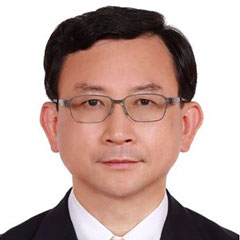
Mao-Hsiung Chiang
Professor and Department Chairman, Department of Engineering Science and Ocean Engineering, National Taiwan University, Taipei
Biography
Mao-Hsiung Chiang obtained a bachelor’s degree in 1992 from the Department of Naval Architecture and Ocean Engineering, National Taiwan University, and a master’s degree in 1992 from the same department. In 1994, he studied at the Institute of Fluid Power Transmission and Control (IFAS), RWTH Aachen University, Germany, and in 1998, he received a PhD in Fluid Power Control. From 1998 to 2006, he was Assistant Professor and then Associate Professor at the Institute of Automation and Control, National Taiwan University of Science and Technology. In 2006 he was Associate Professor in the Department of Engineering Science and Ocean Engineering, National Taiwan University, Taipei, Taiwan. Since 2012, he has been Full Professor in the same department, and since 2015 he has been the Department Chairman in the same department. From 2016 to 2019 he was Principal Investigator at the Offshore Wind Power and Marine Energy Focus Center, National Energy Program NEP II, Taiwan. Since 2018, he has been Director of the Energy Research Center at National Taiwan University. His recent research interests include renewable energy system dynamic simulation and control, opto-mechatronic system design and control, and fluid power control.
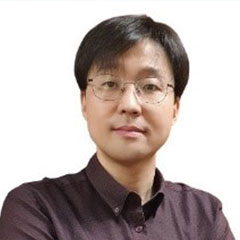
Hyoung Kyu Cho
Department of Nuclear Engineering, Seoul National University, Seoul
Biography
Hyoung Kyu Cho is an associate professor of Nuclear Engineering at Seoul National University (SNU). He is a thermal-hydraulics researcher, whose recent research interests are TH model development, experimental investigation in two-phase flow systems, code development for marine reactors, and heat pipe cooled micro-reactors. He graduated from SNU with bachelor’s, master’s and PhD in nuclear engineering in 1998, 2000, and 2004, respectively. He worked at the Korea Atomic Energy Research Institute for 8 years, participating in the project for high fidelity TH code development.

Bum-Jin Chung
Department of Nuclear Engineering, Kyung Hee University, Gyeonggi-do
Biography
Dr Bum-Jin Chung received a PhD in 1994 from Seoul National University, Korea. From 1995 to 2002, he worked for the Korean Ministry of Science and Technology and from 1999 to 2001, he studied at the University of Manchester, U.K. From 2002 to 2013, he was a Professor in the Nuclear and Energy Engineering Department of Jeju National University, Korea, and from 2012 to 2013, he led the nuclear R&D division of the National Research Foundation of Korea.
He has published more than 200 research papers on condensation phenomena, analogy experimental methods using electrochemical systems, natural, and mixed convection heat transfer in nuclear systems applications, such as High Temperature Gas Cooled Reactor (HTGR) and Sodium-cooled Fast Reactor (SFR) safety systems. Recently, he expanded his research interests to severe accident phenomena.
He has deep interest in nuclear manpower demand and supply and education issues. He founded and led the Nuclear Technology Undergraduate Student Society (MtUss) and participated in the various consultations with the Korean government, the IAEA, and the OECD/NEA.
He has been working actively as a member of governmental committees and participating in international expert meetings organized by the IAEA and the OECD. He is an editorial board member of the Korea Nuclear Society (KNS) and Korea Atomic Industry Forum (KAIF), and writes articles for newspapers.
In 2017, he devoted himself to fighting the Korean nuclear phase-out policy and led the resumption of construction of Shin-Kori NPP Units 5 and 6. He has written more than 300 newspaper articles and received the Communication Award from the KNS in 2017 and from the Korea Science Journalists Association (KSJA) in 2020.
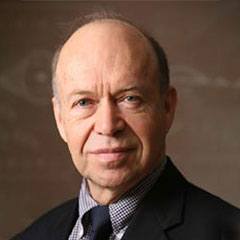
James E. Hansen
Tang Laureate 2018
Biography
Dr James Hansen, formerly Director of the NASA Goddard Institute for Space Studies, is an Adjunct Professor at Columbia University’s Earth Institute, where he directs a program in Climate Science, Awareness and Solutions. He was trained in physics and astronomy in the space science program of Dr James Van Allen at the University of Iowa. His early research on the clouds of Venus helped identify their composition as sulfuric acid. Since the late 1970s, his research has focused on the Earth's climate, especially human-made climate change. Dr Hansen is best known for his testimony on climate change to congressional committees in the 1980s, which helped raise broad awareness of the global warming issue. He was elected to the National Academy of Sciences in 1995 and was designated by Time Magazine in 2006 one of the 100 most influential people in the world. He has received numerous awards, including the Carl-Gustaf Rossby and Roger Revelle Research Medals, the Sophie Prize, and the Blue Planet Prize. Dr Hansen is recognized for speaking truth to power, for identifying ineffectual policies as greenwash, and for outlining action that the public must take to protect the future of young people and all life on our planet.

Jr-Hau He
Department of Materials Science & Engineering, City University of Hong Kong, Hong Kong
Biography
Dr Jr-Hau He is a Professor in the Department of Materials Science and Engineering at City University of Hong Kong. From 2007 to 2019, Dr He was a professor in Electrical Engineering at National Taiwan University and King Abdullah University of Science and Technology. He is an influential scientist in the field of optoelectronics. He has made a major contribution to understanding light-mater interaction, which reflects his achievements in photon management on light harvesting devices. He has conducted highly interdisciplinary research to bridge the gap between various research fields, academia and industry. The great success of his research is reflected in his research funding, publications, awards, honors, patents, and technology transfer to industry. He has received grants of over US$ 11M, garnered over 17,000 citations for a body of work consisting of over 250 peer-reviewed journal articles, and has received over 20 patents. He has an H-factor of 71 over his career and has made over 200 presentations at international conferences. The nanotechnology he has developed has been transferred constantly to the energy and LED industry around the world.
Jr-Hau He is a pioneer in photon management for boosting optoelectronic devices. Today photon management is a thriving field with many new phenomena and optoelectronic applications. Dr He exploits the rich experience in industry and university collaboration.
He is a Fellow of OSA, RSC and SPIE.

Lin-wen Hu
Nuclear Reactor Laboratory,
MIT, Massachusetts
Biography
Dr Lin-wen Hu is the Director for Research and Services and Senior Research Scientist at the MIT Nuclear Reactor Laboratory. She received a PhD in nuclear engineering from MIT and has more than 25 years of experience in nuclear reactor systems, nuclear technology applications, and thermal fluid and heat transfer research. Dr Hu is an internationally recognized expert in advanced nuclear reactor development and demonstration, nuclear fuel and materials irradiation tests and safety analysis, low-enrichment uranium fuel conversion for high-performance research reactors, and nuclear reactor applications. Dr Hu collaborates with the nuclear industry and national laboratories, including the Argonne National Laboratory, Idaho National Laboratory, and Oak Ridge National Laboratory. She serves on numerous U.S. and international technical and professional review committees, including two National Academies of Sciences study committees on advancing nuclear medicine and radioisotope production without the use of highly-enriched uranium; the research and test reactor working group of the Nuclear Technology Subcommittee of the International Standards Organization; and the International Group of Research Reactors steering committee; she is chair and executive committee member of the American Nuclear Society Isotope and Radiation Division; member of the technical and project management review committee for SHINE medical technologies; and member of the TR Innovators China 35 under 35 Selection Committee. Dr Hu led the relicensing and power upgrade of the MIT Research Reactor from 5 MW to 6 MW, and previously held a senior reactor operator license issued by the US Nuclear Regulatory Committee. In addition to research and development, and program management, Dr Hu has contributed to training and education, has supervised more than 30 SB, SM, PhD student theses, and mentored postdocs and early-career research scientists at MIT. Dr Hu is a Fellow and Lifetime member of the American Nuclear Society, and has authored more than 250 peer-reviewed technical publications.

Bing Joe Hwang
Department of Chemical Engineering, National Taiwan University of Science and Technology, Taipei
Sustainable Energy Development Center, National Taiwan University of Science and Technology, Taipei
National Synchrotron Radiation Research Center (NSRRC), Hsinchu
Biography
Professor Bing-Joe Hwang received a PhD in chemical engineering from the National Cheng Kung University in 1987. He is currently the Chair Professor in the Department of Chemical Engineering at National Taiwan University of Science and Technology (Taiwan Tech), with 430 peer-reviewed publications, 54 patents, 24,324 citations, and an H-index of 76. He is also the Director of the Sustainable Energy Development Center (Taiwan Tech), Adjunct Researcher of National Synchrotron Radiation Research, and Associate Editor of the journal ACS Sustainable Chemistry & Engineering. Professor Hwang has received many awards, including the Humboldt research award in 2020, the Life National Chair Professorship in Engineering and Applied Science from the Ministry of Education, Distinguished Professor of Engineering in 2020, fellow of The Royal Society of Chemistry in 2018, Fellow of the Taiwan Institute of Chemical Engineers (TwIChE) in 2018, Academician of the Asian Pacific Academy of Materials (APAM) in 2017, Fellow of International Society of Electrochemistry (FISE) in 2014, Outstanding Research Fellow of the National Science Council in 2011, Academician of the Academy of Sciences of Lisbon in 2011, three-time recipient of the Outstanding Research Award from the National Science Council of Taiwan, and many more. In addition, Professor Hwang has served in important positions in multiple research and academic societies, including President of The Electrochemical Society of Taiwan, Coordinator of the Program of Chemical Engineering in MOST, President of the Chinese Association of Chemical Sensors and Technology in Taiwan, and President of The Society of Hydrogen and Fuel Cells of Taiwan.

Alex Jen
Lee Shau-Kee Chair Professor of Materials Science and
Chair Professor of Chemistry and Materials Science, City University of Hong Kong, Hong Kong
Biography
Professor Jen served as Provost at CityU from 2016 to 2020. He received a bachelor of science degree from National Tsing Hua University in Taiwan and a PhD from the University of Pennsylvania in the US. Before joining CityU, he served as the Boeing-Johnson Chair Professor and Chair of the Department of Materials Science & Engineering at the University of Washington, Seattle. He was appointed Chief Scientist of the Clean Energy Institute, endowed by the Governor of Washington State. He is a distinguished researcher with more than 940 publications, 68,000 citations, and an H-index of 131. He has received 63 patents and invention disclosures as co-inventor. His interdisciplinary research covers organic/hybrid functional materials and devices for photonics, energy, sensors and nanomedicine.
For his pioneering contributions in the field of organic photonics and electronics, Professor Jen was elected Academician by both the European Academy of Sciences and the Washington State Academy of Sciences. He is a Fellow of several professional societies, including AAAS, MRS, ACS, PMSE, OSA and SPIE. He was named by Times Higher Education in 2018 as one of the “Top 10 university researchers in Perovskite Solar Cell Research”. He was recognised by Thomson Reuters as one of the "World’s Most Influential Scientific Minds of 2015 and 2016” and as a "Highly Cited Researcher" in Materials Science from 2014 to 2020.
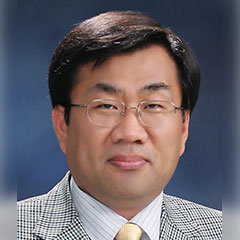
Han Gyu Joo
Department of Nuclear Engineering, Seoul National University, Seoul
Biography
Han Gyu Joo is a Professor of Nuclear Engineering at Seoul National University (SNU). He is also the Director of the SNU Nuclear Energy Policy Center (SNEPC). He is a computational reactor physicist and has led the development of numerous reactor analysis codes at various levels. Since 2017, he has been involved in nuclear energy policy matters and also in public communication to enhance public acceptance of nuclear power. He has been actively involved in the fight against the nuclear power phase-out policy in Korea by writing numerous columns in major media, by participating in many debates, and by posting articles on social networks.
Professor Joo graduated from SNU with bachelor’s and master’s degree in nuclear engineering in 1984 and 1986, respectively. He earned a PhD in nuclear engineering at Purdue University in 1996. He worked at the Korea Atomic Energy Research Institute for 14 years, where he participated in the design of Korean nuclear power plants and developing major reactor neutronics codes. He was the primary author of the PARCS code of the US NRC. He is a pioneer in direct whole core calculation codes needed for high-fidelity multi-physics core simulators used in virtual reactors. He has been a Fellow of the American Nuclear Society since 2015 and is a general member of National Academy of Engineers of Korea.

Way Kuo
President, City University of Hong Kong, Hong Kong
Biography
President Way Kuo was on the Senior Management team at Oak Ridge National Laboratory and served as University Distinguished Professor and Dean of Engineering at the University of Tennessee before he was appointed President and University Distinguished Professor of City University of Hong Kong in 2008.
A Member of US National Academy of Engineering and Fellow of several professional societies, he is renowned for his pioneering work in design for reliability, including electronics and energy systems. He was the first invited foreign expert to conduct a post-accident assessment of the Fukushima Nuclear Plant after the 2011 earthquakes.
In addition to seven academic books, his popular science book Critical Reflections on Nuclear and Renewable Energy, Wiley, NJ, 2013, has been translated into Japanese, French and Russian, and published in Tokyo, Paris and Moscow, respectively.

Min Lee
Department of Engineering and System Science, National Tsing Hua University, Hsinchu
Biography
Professor Min Lee is a Distinguished Professor in the Department of Engineering and System Science (ESS) and Dean of the Nuclear Science College of National Tsing Hua University (NTHU), located at Hsin Chu, Taiwan. He graduated from the Department of Nuclear Engineering at NTHU with a bachelor’s and master’s degree in 1977 and 1979, respectively. He received a PhD in Nuclear Engineering from MIT in 1985 and worked at Brookhaven National Laboratories for three and half years before going back to Taiwan in 1989 and becoming an associate professor at NTHU.
Professor Lee’s research fields include Probabilistic Risk Assessment of Nuclear Power Plants; LWR Severe Accident Phenomenology and Management; Source Term Characterisation of Nuclear Power Plants; Ultimate Response Guidance for Nuclear Power Plants; Heat Transfer; and System Thermal-Hydraulic Analyses of LWR.
He has held several administrative positions at NTHU, including Vice-President /Secretary General, VP of General Affairs, VP of Student Affairs, and Chairman of the ESS Department.
He was appointed by the Ministry of Economic Affairs to the Board of Directors of TPC from June 2009 to May 2017; and from March 2001 to September 2007. He was a committee member of the Nuclear Safety Committee of TPC from September 1994 to March 2006.
He promotes national energy policy and public acceptance of nuclear power and has participated in public debates about nuclear power in the media. He was one of three key persons who organised the “Go Green with Nuclear” public referendum at the 24 November 2018 election in Taiwan, gaining support of about 6 million voters.

Lih-Yih Liao
Former Director of the Nuclear Regulatory Technology Support Center, Institute of Nuclear Energy Research (INER), Lungtan
Biography
Dr Lih-Yih Liao is the former director of the Nuclear Regulatory Technology Support Center, of the Institute of Nuclear Energy Research (INER), located in Lungtan, Taiwan. He graduated from the Department of Nuclear Engineering of National Tsing Hua University with bachelor’s and master’s degree in 1976 and 1978, respectively. He received a PhD in Nuclear Engineering from Massachusetts Institute of Technology in 1985. He worked at the Institute of Nuclear Energy Research for 41 years before he retired in 2019.
Dr Liao’s research fields are: Thermal-Hydraulic Transient and Accident Analyses of LWR; Heat Transfer and Two Phase Flow; and Safety Evaluations of Nuclear Power Plants. As the director of the Nuclear Regulatory Technology Support Center, he and his colleagues in the INER have provided continuous technical support for the regulatory body of atomic energy in Taiwan (ROCAEC).

Jun Liu
Pacific Northwest National Laboratory, Richland
University of Washington, Seattle
Dr Jun Liu is a Battelle Fellow at the Pacific Northwest National Laboratory (PNNL), and a Washington Foundation Innovation Chair and Campbell Chair Professor at the University of Washington (UW). He also serves as Director of the Innovation Center for the Battery500 Consortium and President of the International Coalition for Energy Storage. In the past, he played key leadership roles in major research organizations and national programs, including Thrust Leader for the Integrated Center for Nanotechnologies (CINT), Cross-Cut Science Lead for the Joint Center of Energy Storage Research (JCESR), and Division Director for Energy Materials and Processing at PNNL. Dr Liu received the PNNL Lifetime Achievement Award, a Battery Division Technology Award from The Electrochemical Society (ECS), two R&D100 Awards, and the DOE Exceptional Achievement Award. He is an elected member of the Washington Academy of Science, a Materials Research Society (MRS) Fellow, an Electrochemical Society (ECS) Fellow, and an American Association for the Advancement of Science (AAAS) Fellow. He has been ranked globally as a highly cited researcher since 2014. He was named a Distinguished Inventor of Battelle in 2007, and was twice selected as PNNL's Inventor of the Year.Biography
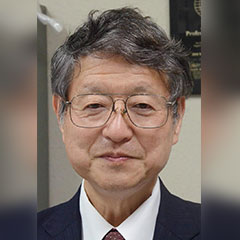
Tadashi Narabayashi
Laboratory for Advanced Nuclear Energy, Institute of Advanced Research
Tokyo Institute of Technology, Tokyo
Biography
Tadashi Narabayashi received a master’s in Nuclear Engineering from the Tokyo Institute of Technology and started at Toshiba Corporation in 1978. He received a PhD in 1991 from the Tokyo Institute of Technology. He was the Chief Specialist of Reactor Components and Two-Phase Flow at Toshiba Corp. He was the Chairman of the 82nd term of Power and Energy System Division of JSME and a JSME Fellow. From 2005 to March 2018, he was a Professor at Hokkaido University, and he is Professor Emeritus of Hokkaido University. In April 2018, he returned to the Tokyo Institute of Technology as a Specially Appointed Professor. He was the technical chairman of the ICONE17 and given an ASME Contribution Award. He has been involved in investigating the causes of accidents and developing countermeasures for other NPPs in Japan as an advisory meeting member of the Nuclear Regulatory Authority (NRA) for the Fukushima Daiichi Accident Investigation Team. He has received a number of awards from the Atomic Society of Japan (AESJ), the Japan Society of Mechanical Engineers (JSME), and the Japan Society of Maintenology (JSM).
He received the Outstanding Professor of the Year Award at the ISOE(IAEA/OECD-NEA) International ALARA Symposium, Jan 8–12, 2018.
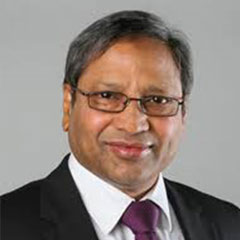
Mohammad Nazeeruddin
École Polytechnique Fédérale de Lausanne, Lausanne
Biography
Professor Nazeeruddin is a Professor of Chemistry at the EPFL Sion campus, and his current research at EPFL focuses on Perovskite Solar Cells and Light-emitting diodes. He has published more than 725 peer-reviewed papers and 10 book chapters, and has been granted over 90 patents as inventor or co-inventor. The strong impact of his work has been recognized by invitations to speak at over 250 international conferences. He appeared in the ISI listing of most cited chemists and has more than 106,439 citations and an h-index of 147. He teaches the "Functional Materials" course at EPFL and Korea University. According to the Web of Science in 2016, he was the fifth most cited chemist in the world and was one of 19 scientists identified by Thomson Reuters as the World's Most Influential Scientific Minds in 2015. He has been named Thomson Reuters "Highly Cited Researcher" from 2014 to 2020 and was listed among the Top 10 researchers in the perovskite solar cell research field by Times Higher Education. He is directing and managing several industrial, national, and European Union projects. He was appointed World Class University Professor by Korea University and Adjunct Professor by the King Abdulaziz University, Jeddah. He was elected to the European Academy of Sciences, and is a Fellow of The Royal Society of Chemistry, and a Fellow of the Telangana Academy of Sciences. He won the 34th Khwarizmi International Award (KIA) Laurate in Fundamental Sciences, 2021.

Yun Hau Ng
School of Energy and Environment, City University of Hong Kong, Hong Kong
Biography
Yun Hau Ng is an Associate Professor in the School of Energy and Environment of City University of Hong Kong. He received a PhD in Chemistry from Osaka University in 2009. After a brief research visit to the Radiation Laboratory at the University of Notre Dame (Professor Prashant Kamat’s group), he joined the Australian Research Council (ARC) Centre of Excellence for Functional Nanomaterials, led by Professor Rose Amal at UNSW and Professor Max Lu at the University of Queensland with an Australian Early Career Researcher Fellowship (APD) in 2011. He became a Lecturer (2014) and Senior Lecturer (2016) in the School of Chemical Engineering at UNSW before joining City University of Hong Kong in 2018.
His research focuses on the development of novel photoactive semiconductors (particles and thin films) for sunlight energy conversion, including hydrogen generation from water and the conversion of carbon dioxide to solar fuels. He was awarded the Honda-Fujishima Prize in 2013 in recognition of his work in the area of photo-driven water splitting. He was also selected as an Emerging Investigator in Energy Materialsby the RSC Journal of Material Chemistry A in 2016. In 2018, he received the Distinguished Lectureship Award from the Chemical Society of Japan. In 2019, he was awarded the APEC Science Prize for Innovation, Research and Education (ASPIRE) in Chile for his work in artificial photosynthesis. He has published over 170 peer-reviewed research articles (including Nature Catalysis, JACS, Angewandte Chemie, Advanced Materials, Energy & Environmental Science, Chemical Society Reviews, and Chemical Reviews) and is credited with over 12,000 citations. He is currently serving as an Editor for the Journal of Materials Science: Materials in Electronics (Springer).
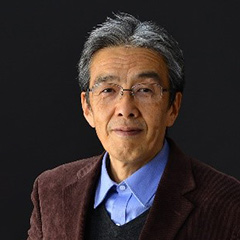
Yuichi Onda
Center for Research in Isotopes and Environmental Dynamics, University of Tsukuba
Biography
Yuichi Onda received a PhD (1990) in Geoscience from the University of Tsukuba, Japan. He was an assistant professor at Nagoya University in Japan from 1992 to 1999, and a visiting scholar in the Department of Geology and Geophysics at the University of California Berkeley from 1994 to 1995. From 1999 to 2003, he was a lecturer in the Institute of Geoscience at the University of Tsukuba, and an associate professor from 2003 to 2009. In 2009, he was a professor in the Graduate School of Life and Environmental Sciences at the University of Tsukuba, Japan, From 2012 to 2015, he was a professor and vice head in the Center for Research in Isotopes and Environmental Dynamics of the University of Tsukuba, and vice head of the Institute of Radioactivity at the University of Tsukuba. Since 2016, he has been a professor and director of the Center for Research in Isotopes and Environmental Dynamics at the University of Tsukuba, Japan.
Professor Onda studied hydrology and sediment transport using global fallout Cs-137 as a tracer from forested catchment, funded by JST's Core Research for Evolutionary Science and Technology (CREST) program, from 2003 to 2008 and from 2009 to 2014. (US$2.5 million grant for each).
After the Fukushima Daiichi Nuclear Power Plant (FDNPP) accident, he received governmental funding for an emergency environmental grant (US$8 million) from 2011 to 2014, and then as leader of JSPS funding for the environmental transfer of radionuclides from FDNPP (US$10 million) from 2013 to 2018. He has also worked with several IAEA missions and written papers related to the environmental impact of the FDNPP accident.
Professor Onda has published 228 papers (h=40, Scopus) on hydrology and sediment transport using Cs-137 as a tracer, and over 100 papers on the environmental effects and radionuclides transfer following the FDNPP accident.
In 2020, he published a comprehensive review, titled “Radionuclides from the Fukushima Daiichi Nuclear Power Plant in terrestrial systems,” in Nature Reviews Earth & Environment (1, 644–660 (2020) 10.1038/s43017-020-0099-x” (available at https://rdcu.be/b9iAz).
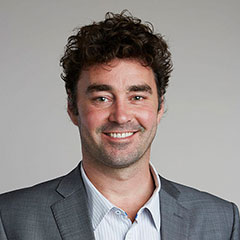
Henry J Snaith
Department of Physics, The University of Oxford, Oxford
Biography
Professor Snaith has worked on developing new low-cost photovoltaic technologies based on simply processed materials, which promise to deliver solar energy at a fraction of the cost of incumbent silicon modules. Since 2012, his research has led to a transformation in the photovoltaics research community. Through a series of key discoveries, he found that metal halide perovskite materials, which had been overlooked for decades because of their very low photovoltaic energy efficiency in earlier days, can be employed as thin film absorber layers in highly efficient solar cells.
He co-founded Oxford Photovoltaics to commercialize the solar technology transferred from his laboratory at the University of Oxford. In 2012, he was awarded the Paterson medal and prize by the Institute of Physics for his important contributions to the field of excitonic solar cells. The following year his discovery of high-efficiency metal halide perovskite photovoltaics was recognized as one of the top breakthroughs of 2013 by the journal Science. In 2013, Nature named Professor Snaith in its list of ten people who mattered, in recognition of his work on next-generation solar power technology, and in 2015, he was elected one of the youngest-ever Fellows of The Royal Society. In 2017, he was named a Clarivate Citation Laureate, and in 2018, he received the UK Blavatnik Awards Laureate in physical sciences. In addition to his role as Chief Scientific Officer at Oxford PV today, Professor Snaith leads the Photovoltaics and Optoelectronics Device Group in the Physics Department at the University of Oxford.

M. Stanley Whittingham
Chemistry Department and Materials Science & Engineering,
Binghamton University (SUNY), Binghamton, New York
Biography
Mr Whittingham is the 2019 Chemistry Nobel Laureate and Distinguished Professor of Chemistry and Materials Science & Engineering at the Binghamton campus of the State University of New York. He received a bachelor’s degree and a PhD from Oxford University in the United Kingdom, where he is an Honorary Fellow of New College. He spent four years in Materials at Stanford University in California.
He has been active in Li-batteries since 1971, when he won the Young Author Award of the Electrochemical Society for his work on solid electrolyte beta-alumina. In 1972, he joined Exxon’s Corporate Research Laboratory and discovered the role of intercalation in battery reactions, which resulted in the first commercial lithium rechargeable batteries, which were built by Exxon Enterprises. In 1988 he returned to academia at SUNY Binghamton to start a program in materials chemistry. He initiated the graduate program in Materials Science and Engineering. He was awarded a JSPS Fellowship in the Physics Department of the University of Tokyo in 1993. From 1993 to 1999 he was Vice-Provost for Research. In 2004, he received the Battery Division Research Award. He is presently Director of the NECCES EFRC, based in Binghamton. In 2012, he received the Yeager Award of the International Battery Association for his lifetime contributions to battery research. In 2015, he received the Lifetime Contributions to Battery Technology award from NAATBaaT, and in 2017, he received the Senior Research Award from Solid State Ionics. In 2018, he was elected a member of the National Academy of Engineering and received the Turnbull Award from the Materials Research Society. He is a Fellow of both the Electrochemical Society and the Materials Research Society. He is Vice-Chair of the Board of Directors of the New York Battery and Energy Storage Technology Consortium (NYBEST).

Nae-Lih Nick Wu
Distinguished Professor, Department of Chemical Engineering,
National Taiwan University, Taipei
Biography
Dr Nae-Lih Nick Wu is currently a Distinguished Professor in the Department of Chemical Engineering at the National Taiwan University (NTU), Taiwan. Dr Wu’s research interests include the synthesis and characterization of electrode and component materials for electrochemical devices, including supercapacitors and rechargeable batteries; the development of advanced in-situ/in-operando analytic methodologies based on synchrotron facilities in characterizing these materials and devices, particularly for energy storage applications; and nano-materials synthesis and applications. He previously served as an SBIR Funding Advisory Board member, Consultant to the Ministry of Economic Affairs in Taiwan, and Director of the Energy Research Center and Chairman of the Chemical Engineering Department at NTU. He is currently an associate editor of the Electrochemical Society journals.

Mikhail Yastrebenetsky
State Scientific Technical Center on Nuclear and Radiation Safety, Kyiv
Biography
Mikhail Yastrebenetsky is PhD, Doctor of Technical Sciences, Professor and Honored Scientist of Ukraine, and Honorary Laborer of Nuclear Energetics of Ukraine. He received a PhD from Kharkov Polytechnic University, a PhD from Moscow Energetical University, and a Dr. Sc. from Kharkov Polytechnic University. Until 1992, he was Head of the Department of “Reliability of Automated Control Systems” of the Central Scientific Research Institute of Complex Automation (Moscow). From 1993 to 2015, he was Head of the Department “NPP Control and Information Systems Safety Analysis” of the State Scientific and Technical Centre of Nuclear and Radiation Safety – Ukraine, and since 2015, he has been the Leading Researcher in this department. From 1986 to 2018, he was Professor of the Department “Systems Analysis and Control” of Kharkov National Technical University. He has written 14 books (the most recent titled Cyber Security and Safety of Nuclear Power Plants Instrumentation and Control Systems, IGI Global, USA. 2020), 300 articles, and 45 international and national standards and regulations. He was the Organizer and Chair of 1-5 International Scientific Technical Conferences “NPP I&C Systems: Safety Aspects”, and President of the International Association of Reliability Specialists “Gnedenko-Forum” (2015–2000). From 2000 to the present, he has been an Expert of the International Electrotechnical Commission – Technical Committee “Instrumentation, control and electrical power systems of nuclear facilities”. From 1999 to 2011, he was a Member of the IAEA International Working Group in Control and Instrumentation.
His research covers the theory of reliability, point stochastic processes, NPP safety and Big Safety.

Tsung-Kuang Yeh
Department of Engineering and System Science, National Tsing Hua University, Hsinchu
Biography
Professor Tsung-Kuang Yeh received a PhD from the Department of Nuclear Engineering of Pennsylvania State University in 1994. He is currently a professor in the Department of Engineering and System Science and the director of the Nuclear Science and Technology Development Center of National Tsing Hua University. Professor Yeh has been involved in R&D in nuclear engineering for more than 16 years. He specializes in corrosion mitigation and water chemistry of light water reactors and certain Generation IV reactors.
Professor Yeh is also actively involved in public communication and general education related to nuclear energy. In the past five years alone, he has written and published more than 100 articles in newspapers and internet news media, criticizing the energy policy of the government, suggesting appropriate approaches for energy security, and advocating the combined benefit of nuclear and renewable energy in decarbonization. He has also accepted more than 50 lecture invitations on general education on nuclear energy and radiation safety in the past five years and has received a positive response from audiences. In addition, he has appeared on national TV many times, sharing his viewpoint on nuclear energy and nuclear power plant safety.
Professor Yeh worked closely with many people in 2018 to promote the “Go Green with Nuclear” referendum. He was devoted to public communication during the promotion campaign, and arranged a series of live broadcasts on topical interviews with specialists in various fields. The overall outcome was more than satisfactory. On November 24 of the same year, nearly 10 million people showed up to vote, and about 60% of the voters showed their support for nuclear energy, resulting in the successful deletion of the text “phasing out nuclear by 2025” from the Electricity Act.

Chunyi Zhi
Department of Materials Science & Engineering, City University of Hong Kong, Hong Kong
Biography
Mikhail Yastrebenetsky is PhD, Doctor of Technical Sciences, Professor and Honored Scientist of Ukraine, and Honorary Laborer of Nuclear Energetics of Ukraine. He received a PhD from Kharkov Polytechnic University, a PhD from Moscow Energetical University, and a Dr. Sc. from Kharkov Polytechnic University. Until 1992, he was Head of the Department of “Reliability of Automated Control Systems” of the Central Scientific Research Institute of Complex Automation (Moscow). From 1993 to 2015, he was Head of the Department “NPP Control and Information Systems Safety Analysis” of the State Scientific and Technical Centre of Nuclear and Radiation Safety – Ukraine, and since 2015, he has been the Leading Researcher in this department. From 1986 to 2018, he was Professor of the Department “Systems Analysis and Control” of Kharkov National Technical University. He has written 14 books (the most recent titled Cyber Security and Safety of Nuclear Power Plants Instrumentation and Control Systems, IGI Global, USA. 2020), 300 articles, and 45 international and national standards and regulations. He was the Organizer and Chair of 1-5 International Scientific Technical Conferences “NPP I&C Systems: Safety Aspects”, and President of the International Association of Reliability Specialists “Gnedenko-Forum” (2015–2000). From 2000 to the present, he has been an Expert of the International Electrotechnical Commission – Technical Committee “Instrumentation, control and electrical power systems of nuclear facilities”. From 1999 to 2011, he was a Member of the IAEA International Working Group in Control and Instrumentation.
His research covers the theory of reliability, point stochastic processes, NPP safety and Big Safety.

Enrico Zio
MINES ParisTech, PSL Research University, CRC, Sophia Antipolis
Energy Department, Politecnico di Milano, Milan
Eminent Scholar in the Department of Nuclear Engineering, Kyung Hee University, Gyeonggi-do
Biography
Enrico Zio received a master’s degree in nuclear engineering from Politecnico di Milano in 1991 and in mechanical engineering from UCLA in 1995, and a PhD in nuclear engineering from Politecnico di Milano and in probabilistic risk assessment from MIT in 1996 and 1998, respectively. He is currently a full professor in the Centre for Research on Risk and Crises (CRC) of Ecole de Mines, ParisTech, PSL University, France; full professor and President of the Alumni Association at Politecnico di Milano, Italy; eminent scholar at Kyung Hee University, Republic of Korea; distinguished guest professor at Tsinghua University, Beijing, China; and adjunct professor at City University of Hong Kong, Beihang University and Wuhan University.
In 2020, he was awarded the prestigious Humboldt Research Award from the Alexander von Humboldt Foundation, one the world's most prestigious research awards across all scientific disciplines. The Award was granted for being a world-leading scientist in Risk and Resilience Assessment, Safety Analysis and Reliability Engineering of complex systems and infrastructure, in particular for energy applications. Professor Zio is a pioneer in using artificial intelligence and evolutionary algorithms in reliability engineering and risk assessment, solving key problems related to the safety and reliability of critical systems, such as those used in the nuclear, oil and gas, and transportation industries.
